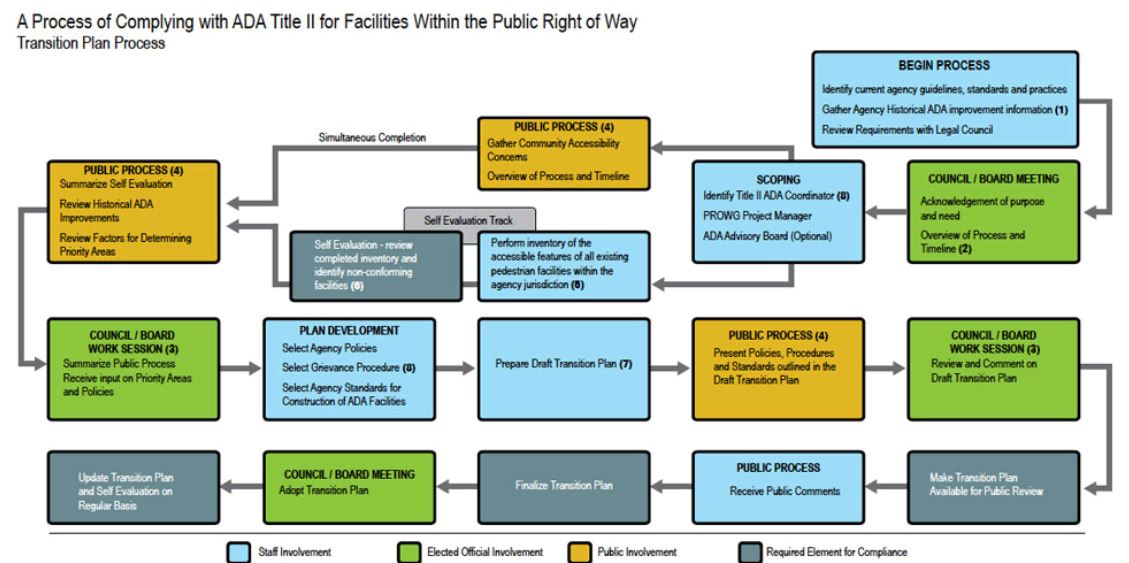All public agencies, as required by the federal American with Disabilities Act (1990), must develop a transition plan identifying physical obstacles that limit accessibility and schedule necessary improvements. Despite federal regulations, many agencies still do not have transition plans, resulting in the potential for civil and civic lawsuits and possibly not being eligible for or losing federal funding. In 2012, the Local Road Research Board funded the development of the “ADA Resource Guide for Local Agencies” which contains model transition plans, process guidelines for providing accessibility within the public rights of way, and current ADA laws to help organizations fulfill this requirement. Please visit https://lrrb.org/ada-transition-plan-for-public-rights-of-way/ to learn more and view the guidebook.
A series of three full day training courses on ADA are currently being developed to assist local agencies with learning about the importance of ADA, developing transition plans, design and construction. The three trainings will cover:
- ADA Overview – Importance of ADA, compliance, enforcement, transition plans, inventories, design terminology, construction basics and communication with the public (Audience: City/County engineers/planners)
- Design – MnDOT Standard Plans, Accessible Pedestrian Signals, ADA Design Case Study review, Project Scoping (Audience: City/County designers/drafters)
- Construction – Curb ramps, sidewalks, landings, driveways, curb and gutter (Audience: Inspectors and contractors)
It is anticipated that the first of the three trainings (ADA Overview) will be administered in late fall in multiple locations across the state, followed by the design and construction trainings in late 2017/early 2018. Check the Minnesota LTAP training calendar for more information about this training in the near future. Contact Ted Schoenecker at ted.schoenecker@state.mn.us if you have questions about the training.
Visit the MnDOT State Aid webpage on ADA for additional examples and resources.
